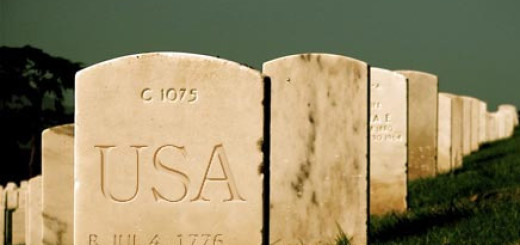Yogi Berra, Open Doors, and the Will of God
Yogi Berra is one of my favorite baseball “characters.” He played catcher for the New York Yankees from 1946 to 1965, winning all-star honors for 15 years consecutively. Later he led both the Yankees and their crosstown rivals, the Mets, to league titles. His athletic accomplishments, however, were easily overshadowed by his quirky personality. He had a unique ability to impart wisdom using statements that seemed irrational and unintelligent, while always leaving a smile on your face. His most famous sayings include:
- “Baseball is 90% mental, the other half is physical.”
- “A nickel ain’t worth a dime anymore.”
- “It ain’t over ‘till it’s over.”
- “It’s Deja-vu all over again.”
- Speaking of a popular restaurant, he said: “Nobody goes there anymore, it’s too crowded.”
- “Always go to other people’s funerals; otherwise they won’t go to yours.”
- “When you come to a fork in the road, take it.”
That last bit of wisdom was offered as a guideline to one of his teammates as he was navigating to Yogi’s house for dinner. We chuckle because we understand the foolish nature of such a decision. How can you ever hope to get to your destination if you are driving blind?
It also identifies a common challenge for many believers who are earnestly seeking to discern the will of God for their lives.
“For we walk by faith, not by sight:” (II Corinthians 5:7)
Every mature believer understands the concept of walking by faith. Abraham was challenged to do so when God called him to leave his home and, by faith, journey to a “land that I will shew thee” (Genesis12:1). Gideon faced such a challenge when God commanded him to reduce the number of warriors in his army from 32,000 to 300 when he was called to “save Israel from the hand of the Midianites” (Judges 6 – 7). David exercised amazing faith when he stepped into the ring to answer the challenge offered by the Philistine champion, Goliath (I Samuel 17). In every case those men were facing a “fork in the road.” “Walking by faith” always requires “choosing by faith.” In other words, we don’t always have the option of saying: “Lord if you’ll just show me the way, I’m very willing to walk by faith.”
Open Doors – Do they always indicate God’s will?
It is not unusual for believers to assume an “open door” is an indication of God’s blessing on a choice they have made, and it’s not always wrong to do so. Paul, on two occasions (I Cor. 16:9 & Col. 4:3), talked in positive terms about open doors that were placed before him, and it’s obvious that he saw them as opportunities provided by God. We must be careful, however, not to become too cavalier in our approach. Not every open door comes from God. Satan can turn a door handle as well, and he’s very adept at learning what we want to happen, and where we want to go.
David spent almost ten years fleeing from King Saul, an angry, bitter monarch who would have killed his most successful military general without a moment’s hesitation. While Saul never actually gained that opportunity, the same cannot be said for David. On two occasions David had Saul dead in his sights and could have taken his life with ease. Both times David’s men encouraged him to kill his pursuer, insisting that “God hath delivered thine enemy into thine hand this day” (I Sam. 26:8). In their opinion, the door was wide open, and God had turned the knob.
But knowing the will of God requires more than simply having an opportunity to do what we want. David understood that, and chose to forego vengeance for the sake of godly discipline. Though it was dangerous to spare Saul (Saul continued to pursue David), doing so was the right choice.
Later in David’s life he had an “open door” to do something else that he wanted to do and, in that situation, the doorman was clearly identified. I Chronicles 21:1 states that it was Satan who, “provoked David to number Israel.” David’s choice to move through that open door resulted in the deaths of 70,000 men (I Chron. 21:14).
There are other times, however, when walking by faith means choosing to move ahead even though the door appears to be closed. In Numbers 13 God told Moses to send men into the land of Canaan to survey their inheritance. All but two of those “spies” returned with a negative report: “the people be strong that dwell in the land, and the cities are walled, and very great: and moreover we saw the children of Anak there” (Num. 13:28). Because they considered the door to be tightly closed, they encouraged Israel to remain on the east side of the river Jordan. Doing so sentenced Israel to forty years of pointless wandering in the desert. Every man alive at the time (with the exception of Joshua and Caleb) died in the wilderness. God had promised victory, in spite of what appeared to be a closed door, but that promise required Israel to walk by faith.
Choosing the right fork
What happens, however, when there is simply no evidence of God’s will? The scriptural answer is, once again, we are to walk by faith. We do not have to know the right path to stay on the right path. We only have to be sincere in our desire to stay on the right path. Psalm 37:23 says, “The steps of a good man are ordered by the Lord.” While I may not know the way, I can have assurance that God is “ordering my steps.” Since He knows the way, I can be sure I’m in His will.
So, when I come to a fork in the road, I take it, just like Yogi encouraged his friend to do. I pray for God’s guidance, make a choice, and begin walking. For a believer it’s not foolishness – it’s faith, and it’s the only hope we have of staying on the right path.





Recent Comments